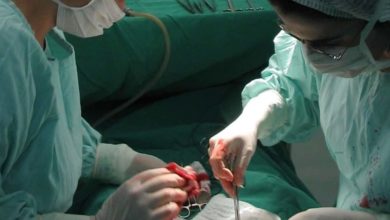The terms BS/MD, direct medical, and combined baccalaureate-MD programs are all synonymous. Most of us just call these “BS/MD Programs.”
If you’re like most medical students, you already have your mind on becoming a physician before entering college. But did you know that you can actually secure your spot in medical school before even attending college?
Table of contents
What Is a BS/MD Program?
A BS/MD program is a combined program that grants high school graduates the opportunity to earn their bachelor’s and a medical degree. In other words, you bypass having to go through the tedious and arduous medical school application process.
Why Do a BS/MD Program?
These programs allow students to be conditionally accepted into medical school as an upcoming freshman in college. Do well in your courses, and you have your medical school acceptance. Automatic acceptance is a huge incentive, especially considering the competitive nature of successfully matriculating into medical school these days.
We asked MedSchoolCoach’s director of direct BS/MD advising (Dr. Kachiu Lee) on why one should do a BS/MD program and she said
“An automatic acceptance to medical school (assuming you meet their undergraduate GPA and MCAT requirements) means that you can take the time to explore your interests. Always wanted to study abroad in Spain? Go for it. Interested in learning Python or another coding language? Take as many comp sci classes as you want! Instead of focusing on checking off boxes to enhance your medical school application, you can focus on self-growth and picking activities that matter the most to you.”
Kaichu Lee, MD
What Are the Requirements for a BS/MD Program?
Standard across the board, you need exceptional grades and standardized test scores (ACT, SAT) to be considered for these programs. You always need to show passion and interest for a career in medicine. This can be done by extensive volunteer work in a clinical setting. However, each BS/MD program may have specific requirements for its students. We’ll mention the specific requirements of these programs.
However, it’s important to mention that these programs are extremely competitive. In addition to the requirements listed below, applicants will need to have strong letters of recommendation, extensive volunteering (both clinical and non-clinical), and a deep passion for medicine.
Read Next: Military Medicine: 3 Ways To Serve, Plus Scholarship Options
6-Year BS/MD Program Track
University of Missouri- Kansas City School of Medicine BA/MD Program
Applicants here must have:
- Minimum 3.0 unweighted GPA in the 17 core requirements of the university (core requirements are: four units of english, four units of mathematics, three units of science (recommended one unit of biology and one unit of chemistry), three units of social studies, two units of a single foreign language, one unit of fine arts (visual arts, music, dance, or theater)
- Minimum ACT score of 24 (1160 for SAT) writing section for both exams will not be used
- Important note, the average ACT and SAT score for students is 32 and 1420 respectively
- U.S. citizenship or permanent resident status
- Graduated from a high school (U.S. accredited) or home school program in the United States, or have obtained their GED
- Less than 24 hours of post-high school college credit if you’re a current college student
- At least a 3.0 GPA in the first semester of college for college students
7-Year BS/MD Program Track
Penn State/ Sidney Kimmel Medical College Accelerated PreMedical-Medical Program (PMM)
Applicants must have:
- All qualifying test scores from a single test date (previously accepted students had an average SAT score of 1570 (math plus evidence-based reading and writing), or a composite score of 36 on the ACT
- Strong GPA and evidence of participation in rigorous high school classwork, possibly including honors, AP, or IB classes
- Four units of English, two units of algebra, one unit of plane geometry, one-half unit of trigonometry, three units of science, and three units from social studies, humanities, and/or the arts
- One-page resume listing most meaningful accomplishments and extracurricular activities during high school years
- Completed self-reported academic record (SRAR)
Albany Medical College/Rensselaer Polytechnic Institute (RPI) Physician Scientist Program
Applicants must:
- 4 years of English, 1 year each of biology, physics, and chemistry, 4 years of mathematics through pre-calculus throughout high school
- SAT I in mathematics (level I, level IC, level II, or level IIC), writing; and science (physics, chemistry, biology, or biology E/M) are required. In lieu of the SAT, ACT scores may be submitted. All tests must be completed by the November test date prior to the proposed September matriculation.
- Be a U.S. citizen or permanent resident
Sophie Davis Biomedical Education Program/CUNY School of Medicine BS/MD Program
Applicants must:
- Be a high school graduate as of June 30th
- Have a minimum grade point average of 85 through the first 3 years of high school
- Submit 3 essays
- Submit 5 letters of recommendation
George Washington University Columbian College of Arts and Sciences and the School of Medicine and Health Sciences BS/MD Program
Applicants must:
- Have competitive SAT/ACT test scores (90%)
- Meet M.D. program technical standards
- Be in senior year of high school
Augusta University/Medical College of Georgia BS/MD Program
Applicants must:
- Be in their senior year of high school and applying to Augusta University as a first-time freshman applicant
- Have a minimum GPA of 3.7
- Have a minimum SAT score of 1450+EBRW and math (evidence-based reading and writing) or 32 on the ACT
- Be a U.S. citizen or permanent resident
Bachelor of Science/Doctor of Medicine [BS/MD] Program Meharry Medical College
Applicants must:
- Be a Black/African-American student
- U.S. citizen or permanent resident
- An overall and science GPA of 3.25 (applicants are selected during 2nd semester of their first year in undergrad)
- Two letters of recommendation from professors/or advisors
- Submit a 1-2 page essay
Newark College of Arts and Sciences/New Jersey Medical School at Rutgers University BA/MD Joint Degree Program
Applicants must:
- Have a minimum score of 1400 on the SAT (critical reading and math combined) or a minimum score of 32 on the ACT
- Be a high school senior
- Be U.S. citizens or permanent residents
Rutgers University/Robert Wood Johnson Medical School BA/MD Program
Applicants must:
- Have completed 4 semesters of college, with a minimum of 60 credits (applicants with associates degrees are ineligible to apply)
- Be enrolled for one year at RU-NB(Rutgers New Brunswick), earning 30 credits
- Have earned and maintained a minimum cumulative and science GPA of 3.5 at Rutgers
- Have taken two semesters of General Biology with lab, two semesters of General Chemistry with lab, two semesters of Organic Chemistry (lab may be taken in the Junior year), one semester of college-level Mathematics, and one semester of English
- If AP or transfer credit was granted for General Biology, two other approved biology courses (200-level courses or higher) must be taken at Rutgers University (Recommended classes include: Biostatistics and Spanish)
- Have 3 letters of recommendation from Rutgers University submitted on their behalf
University of Illinois College of Medicine GPPA Medical Scholars Program
Applicants must:
- Be a first-year applicant
- Be a resident of Illinois, and a U.S. citizen or permanent resident
Judy Genshaft Honors College at USF/Morsani College of Medicine BS/MD Program
Applicants must:
- Have a 4.0 weighted high school GPA
- Have a minimum SAT score of 1500 (critical reading and math) or a combined ACT score of 34
8-Year BS/MD program Track
Donald and Barbara Zucker School of Medicine at Hofstra/Northwell 4+4 Program: BS-BA/MD
Applicants here must have:
- 3.7 GPA on a 4.0 scale
- Rank in the top 10% of class (if applicable)
- Minimum score of 1410 (Evidence-Based Reading and Writing+ Math) on the SAT or 32 on ACT
- Completed CASPer/Altus exam by mid-January
- U.S. citizenship or permanent resident status
Albany Medical College/Union College
Applicants must:
- Have 4 years of English, 3 years of mathematics through trigonometry, and one year each of biology and chemistry
- Have SAT I mathematics (level I, level IC, level II, or level IIC); writing and science (physics, chemistry, biology, or biology E/M)
- In lieu of the SAT, the American College Test (ACT) scores may be submitted. All tests must be completed by the November test date prior to the proposed September matriculation.
- Have a combined SAT score above 1410 or a combined ACT score at or above 30
- Be a U.S. citizen
Albany Medical College/Siena College
Applicants must:
- Have a minimum SAT score of 1360 or 30 on the ACT
- Complete an application with Siena College and select application plan for Albany Medical College with Biology BA as major option
- Complete Siena/AMC supplemental essay
- Submit official high school transcript
- High school counselor recommendation
- 2 academic teacher recommendations
- Rank in the top 10 percent of graduating class
- 4 years each of high school math and science
Baylor University/Baylor College of Medicine (Baylor2Baylor Medical Program)
Applicants must:
- Rank in the top 5% of high school graduating class
- Have a minimum 3.7 GPA
- Have 1430+ on SAT or 32+ on ACT (although students may qualify without submitting scores)
- Be a U.S. citizen or permanent resident
Case Western Reserve University (Pre-Professional Scholars Program)
Average pre-professional scholars program:
- Pursued a challenging course of study in high school
- Presented academic credentials that would rank among our most competitive applicants for admission
- Engaged in meaningful volunteering and shadowing experiences to gain exposure to medicine
- Was a recognized leader in their school and community
- Participated in a range of extracurricular activities
- Demonstrated care and concern for others
Drexel University BA/BS+MD Early Assurance Program
Applicants must:
- Be a U.S. citizen or permanent resident applying for first-year admission
- Be on track to graduate from an American High School Accredited by a United States Agency
- Have a minimum 3.5 GPA on a 4.0 weighted scale (subject to change)
- Have a combined SAT score of at least 1420 on the SAT (for Evidence-based Reading and Writing and Math sections) or a minimum ACT composite score of 31
- Be on track to graduate, having satisfactorily completed four years of laboratory science with one year each of biology, chemistry, and physics
Florida Atlantic University BS/MD program
Applicants must:
- Have a minimum score of 1490 on SAT or 33 on ACT
- Weighted high school GPA of 4.30
- Be a U.S. citizen or permanent resident
St. Louis University Medical Scholars Program
Applicants must:
- Have an outstanding academic record with only As and Bs in math and science courses
- Submit two short essay questions
- Submit resume listing service and leadership experiences, as well as extracurricular activities
- Submit two letters of recommendation (these can be the same as those used for general admission, but other letters are also accepted)
SUNY Upstate Medical University College of Medicine Upstate Accelerated Scholars (UAS) Program
Applicants must:
- Have an excellent high school GPA with a 90% average minimum
- Extra-curricular activities that document some experience in a healthcare setting and commitment to service work
- Combined Math and Reading SAT scores of 1360 or better or ACT score of 29 Composite or better
Renaissance School of Medicine/Stony Brook University
Successful applicants had:
- 98-99% high school GPAs
- 1490-1590 SAT score or 35-36 ACT score
Applicants must:
- Have U.S. citizenship or permanent residence
University of Colorado Denver/ University of Colorado Anschutz Medical Campus
Applicants must:
- Apply to CU Denver and be accepted for admission as a degree-seeking student at the University of Colorado Denver Downtown campus
- Be current residents of the State of Colorado and a citizen of the United States, a DACA recipient, or a U.S. permanent resident with a Form I-551, I-151, or I-551C
Successful BA/BS-MD applicants have:
- A minimum high school grade point average of 3.5 (weighted or unweighted; whichever is higher)
- A composite ACT Score of 27 or higher and or an Evidenced Based Reading & Writing +Math SAT Score of 1185 or higher
This program is designed for Colorado high school seniors who meet one or more of the following criteria:
- From educationally disadvantaged backgrounds
- From financially disadvantaged backgrounds
- From federally designated rural/frontier communities in Colorado
- From ethnic groups who are currently under-represented in the medical community in Colorado including:
- Black or African American
- Hispanic/Latino
- Native American/Alaska Native
- Pacific Islander
- Vietnamese
- First-generation college students — someone whose parents did not attend or graduate from college or did not complete a baccalaureate degree
- Desire to practice medicine in Colorado as a primary care physician after the completion of medical school and residency
University of Connecticut BS/MD Program
Applicants should have:
- An overall secondary school grade point average of 3.5 (4.0 scale)
UNM College of Arts & Sciences/UNM School of Medicine BS/MD program
Applicants must:
- Live and attend a high school in New Mexico or is a tribal member living on the Navajo Nation and attending a local high school at the time of the application
- Commit to pursuing a medical career in New Mexico’s rural or medically underserved areas
- Meet and submit minimum ACT or SAT score requirements (listed below) prior to the application deadline
University of Pittsburgh School of Medicine’s Guaranteed Admission Program (GAP)
Applicants must:
- Earn the highest grade point average available at their high school in the context of a curriculum showing the greatest academic rigor possible
- Achieve a minimum SAT score of 1490 (combined Evidence-Based Reading and Writing and Math) or 34 ACT composite score
University of Rochester (Rochester Early Medical Scholars) Program
Applicants may be a good fit if:
- They are passionate about a career in medicine
- They take challenging classes (honors, AP, IB, college-level classes, etc.)
- They take an exceptionally rigorous high school math and science curriculum, including calculus, biology, and chemistry
- They do well academically (strong REMS applicants typically have a 3.95 unweighted GPA and rank in the top three percent of their graduating class)
- They have medical experience (e.g., shadowing physicians, volunteering at a hospital, working for an ambulance corps/EMT program, participating in premedical summer programs, conducting research)
- They are also involved in non-medical activities (e.g., leadership, service in your community, music, athletics, etc.)
Virginia Commonwealth University Guaranteed Admission Program
Applicants must:
- Have a minimum of a 1330 combined SAT score from critical reading and mathematics from one test administration on your SAT1 or a 29 ACT composite score
- Have an unweighted GPA of at least 3.5 on a 4.0 scale, or the equivalent
Brown University Program in Liberal Medical Education (PLME) Program
Applicants should:
- Take advantage of honors or advanced placement offerings available to them in high school
Wayne State University School of Medicine
Applicants must:
- Have a minimum 3.5 GPA
- Have a minimum 1310 SAT or 28 ACT score
- Be a U.S. citizen or permanent resident
- Be an incoming freshman
Speak with a member of our enrollment team today to learn how we can help you get into a BS/MD program!



